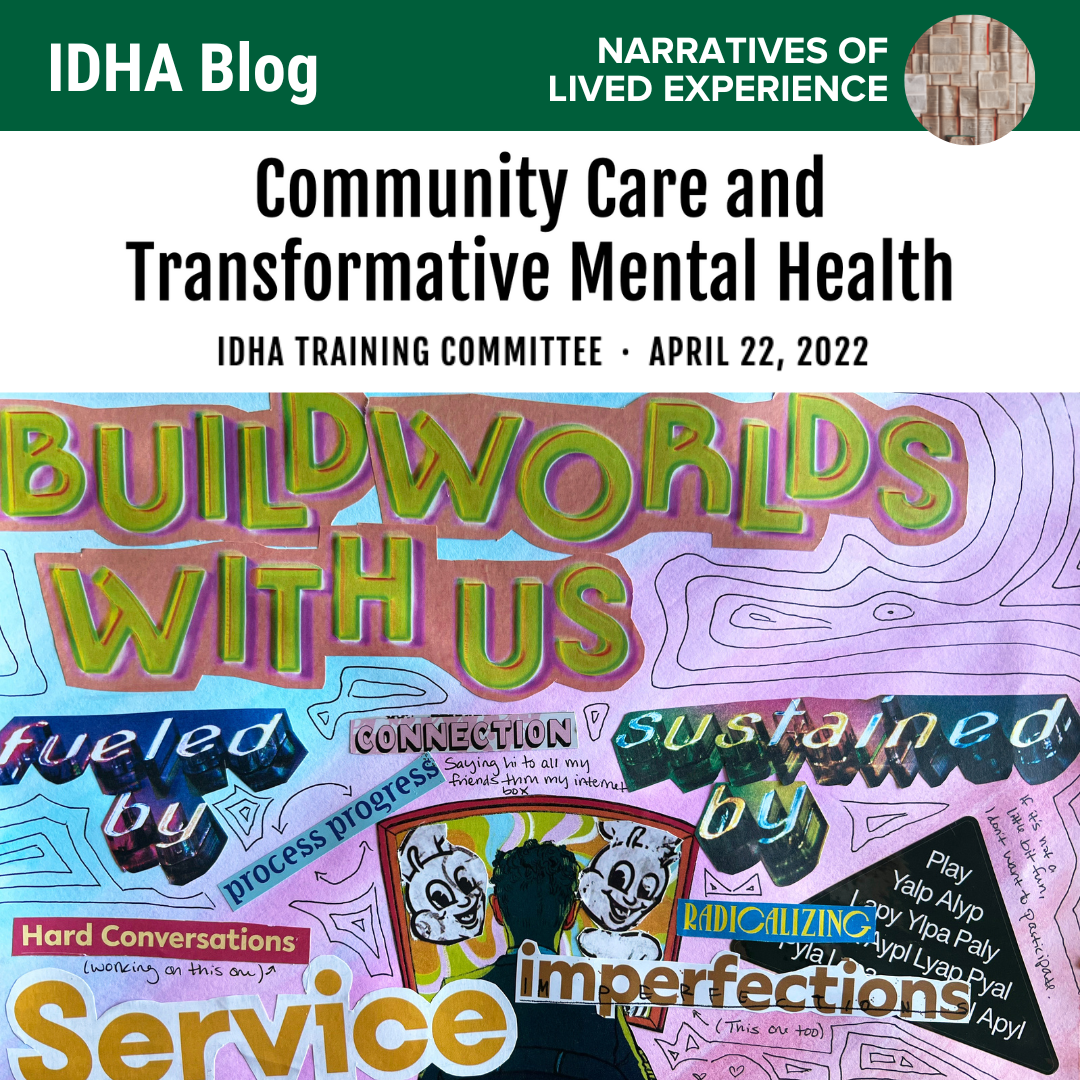In 2020, IDHA articulated a vision of developing a scalable and iterative mental health training model that proliferates rights-based, peer-centered, and holistic approaches to mental health with the goal of shifting dominant biomedical narratives toward a paradigm of polyphony, humanity, and care. Since then, we have been developing our “core offering,” — an in-depth, eight-week training that seeks to help fill a critical gap in the siloed movement for transformative mental health, bridging a range of stakeholders and amplifying an abundance of alternative tools and practices.
Building on work conducted between 2020-2021, this year we created a detailed outline of the curriculum, drawing upon a review of all IDHA trainings offered since our founding, and an analysis of the results of a community survey (50 respondents) and extensive lived experience interviews conducted in 2021 (23 interviewees). The outline underwent multiple stages of feedback, spanning members of IDHA’s Core Curriculum Committee, individuals nominated by the committee, the lived experience interviewees, and others in our community. We also conducted a thorough review of existing mental health trainings, surfacing further lessons regarding content and format. The final outline consists of 8 modules, and will introduce participants to a systemic, historical analysis, understanding how racism, classism, and other forms of oppression intersect with mental health; diverse narratives of lived experience; the history and impact of grassroots movements; a plethora of community-based practices that support healing on a personal, interpersonal, and community level; and how to apply a transformative mental health lens to one’s life and work.
Over the summer, we convened a series of Curriculum Development Groups (CDGs) to further build out content for each module, inviting individuals with a wide range of “expertise” to participate in dynamic virtual conversations. Our open definition of expertise was process- and content-oriented, inclusive of knowledge obtained through wide-ranging methods and experiences (centering lived experience), and with a critical lens. CDGs not only provided the unique opportunity to contribute to the development of the training, but also built community among individuals and groups working and organizing across multiple perspectives, movements, and disciplines. We solicited ongoing feedback from CDG participants on the process, content, and faculty nominations.
The rest of the year was spent finalizing and inviting the teaching faculty, and designing a robust remote video production process that would allow us to film dozens of faculty members from around the world. As we move through the final stage of the project, product creation, we look forward to sharing the Transformative Mental Health Core Curriculum with you in 2023.















































